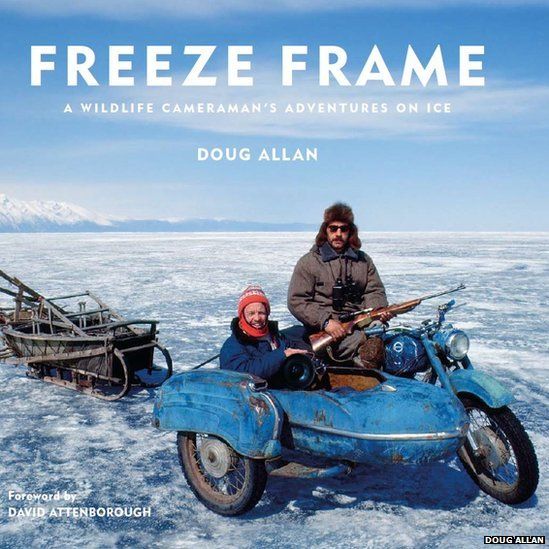In my mid-teens, I began to find navigating the world around me increasingly difficult. It had expanded beyond my family and my teachers. Friendships among my peers seemed to be far more important than schoolwork or interests, all of a sudden. They appeared to interested only in who was friends with whom, what they were wearing and which pop band they were affiliated with. I was as lost as I have ever been. It was around this time that I started to engage with science fiction and fantasy novels. It had become clear that I would not be able to continue in my English courses without reading fiction, and this was horrible thought. (Like many people with Asperger's, I preferred non-fiction.)
After some experimentation (and countless trips to the library) I found that I had no patience for those wonderful character studies and historical dramatisations of the 19th Century, and Shakespeare was only manageable if I thought about the language like a puzzle. I found that I could access some genres better, as long as the writing was very considered, factually based or full of detailed imagery and description, (preferably all three). Quite by accident, this led me to some of the most highly regarded literature around.
I had begun by reading everything by JRR Tolkien, and Mervyn Peake's Gormenghast Trilogy. I moved on to Homer and Virgil, where the structure and continuous blow-by-blow account of the events kept my interest. 'Whodunnits' bored me. (You cannot participate in the puzzle, as the writer only spoon-feeds you enough facts to move the story along.) I even dabbled in horror, but could not engage with Poe or Stephen King or anything much except for Clive Barker (Weaveworld and Imajica), and they are more fantasy than anything. Eventually, I hit upon Science Fiction. This was a much maligned genre of literature at the time, and there was a poor range available in the library, but I read H.G Wells, Azimov, Pohl, Heinlein, Niven and Bradbury, to name a few - whatever I could get my hands on, from jumble sales, carboots and book sales.
When I read The Hitchhiker's Guide to the Galaxy in 1987, it had already been in circulation for 8 years. The Radio series had come and gone, as had the TV series. It was only my knowledge of 'The Meaning of Liff' that made me consider reading it at all. I picked up my original copy at a library sale; I still have it, dog-eared little paperback with it's library plastic cover and the front leaf ripped out (where the stamped dates would have been). I'd had it for some years - I think the 'based on the famous radio show' emblazoned on the front actually put me off reading it. But read it I did.
It is difficult to explain how much I love this book, and the other 4 in the 'trilogy'. Where to start? The premise is genius. A guide book/encyclopaedia of the entire Galaxy. The themes and philosophical questions are fascinating: Scale, for example is a theme that brings up some of my favourite quotes... "Space is Big. Really big. You just won't believe how vastly, hugely, mindbogglingly big it is. I mean, you may think it's a long way down the road to the chemist's, but that's just peanuts to space". Then there's the wonderful warning tale about loose talk and it's consequences: “the mighty ships tore across the empty wastes of space and finally dived screaming on to the first planet they came across - which happened to be the Earth - where due to a terrible miscalculation of scale the entire battle fleet was accidentally swallowed by a small dog.” and the sublime concept of the Total Perspective Vortex - a terrible torture device that destroys your mind by showing you how incredibly insignificant you are in comparison to the entirety of the universe.
The Guidebook acts as the vehicle for little tangential stories along the way: The story of where all the 'lost' Biros go is charming, and, of course, there is the Babel Fish, Man vs God Argument. Scattered through the books are Adams' signature leaps of logic. His description (in the later books) of how you learn to fly by a process of 'distracting yourself from falling' at the key moment is delightful. Similarly, he ignores all the well-known considerations inherent to immortality, and works on the premise that, were you immortal, you might be quite bored and fed up. You might even decide to take this frustration out on all the beings in the universe who were not immortal. By insulting them, individually. One by one. Even the tricky issue of time travel is no obstacle for Adams - He's happy to step over the 'temporal paradoxes' that have perplexed scientists for decades, and which are the bread and butter of Sci-Fi programmes like Star Trek, and focus directly on the real problem: Grammar.
Logic makes me happy, as it does many people with Asperger's. I find it both calming and pleasing when things 'work out' as predicted, so I love the neat 'all loose ends tied up' feeling I get from Adams' 'scientific' explanations. They are stated with infinite authority and confidence, and make such perfect sense, They are so wonderfully fitting. The same goes for his philosophical and theological observations - Would you prefer to eat an animal that was bred to want to be eaten and was capable of saying so, clearly? There's Hotblack Desiato's rock star spending a year dead for tax reasons and, of course, God's final message to his creation was: "We apologise for the inconvenience".
Adams' books take all the stuff of those serious Sci-Fi novels and has a damned good laugh with it. He clearly had a great interest in science, in tandem with a seasoned appreciation of the frankly absurdity of the more colourful theories and applications. It was his books that encouraged me to learn about phenomena like Brownian motion and sets of infinities, and sparked my obsession with quantum physics. When I read about the quantum theories of the 'probabilistic' Universe, I can hear Adams' voice quietly reciting the story of the The Infinite Improbability Drive, which allowed a ship to pass through every conceivable point in the universe without all that 'tedious mucking about in hyperspace'. To successfully generate the infinite improbability needed to fling a ship across the vast distances between stars, was considered a 'virtual impossibility'. So along comes a student who reasons thus: "if such a machine is a virtual impossibility, it must be a finite improbability. So all I’d need to do is work out exactly how improbable it is, feed that number into the finite improbability generator, give it a fresh cup of really hot tea, and turn it on!" (The cup of tea is the 'Brownian motion generator' in the scenario.)
Of course, such bizarre occurrences and coincidences as those that litter these books, demand a style of writing that can accommodate this level of 'lateral thinking'. The delightful anti-climaxes that pop up, just when you least expect them are a constant joy: "Forty-two," said Deep Thought, with infinite majesty and calm.” This is the famous response to the question of Life, The Universe and Everything. Then there is the occasion when, having been saved from certain death in the vacuum of space by an alien with two heads and three arms, Arthur Dent (our bewildered and, until recently, Earthbound hero) is introduced to the fugitive Galactic President Beeblebrox: "We've met, haven't we Zaphod Beeblebrox—or should I say... Phil?" And my personal favourite: "The ships hung in the sky in much the same way that bricks don't."
As much as I could bore everyone stupid for hours just talking about these books, Adams also penned the Dirk Gently books. It was whilst reading these books and the titular character's reliance on the "fundamental interconnectedness of all things", that I began to understand Adam's intense interest in the natural world. His book "Last Chance to See" (co-written with Zoologist Mark Carwadine) is described by Adams as his favourite, and I think I know why. It's clear they had a whale of time on these journeys to discover endangered species around the world, and Adams' humour is ever-present, but so is a clear and surprisingly heartfelt concern for their plight. “The Kakapo is a bird out of time. If you look one in its large, round, greeny-brown face, it has a look of serenely innocent incomprehension that makes you want to hug it and tell it that everything will be all right, though you know that it probably will not be."
Here is a person who loved science and nature and saw the infinite ties that connect everything together. The opportunity to meet with someone who held my interests, loves, concerns, fascination and humour as their own would be a joy indeed: “The world is a thing of utter inordinate complexity and richness and strangeness that is absolutely awesome. I mean the idea that such complexity can arise not only out of such simplicity, but probably absolutely out of nothing, is the most fabulous extraordinary idea. And once you get some kind of inkling of how that might have happened, it’s just wonderful. And … the opportunity to spend 70 or 80 years of your life in such a universe is time well spent as far as I am concerned.” A tragedy that he died aged just 49.
So. There we have it. I get the feeling there wouldn't be much eating of dinner going on, but even so - the time would be too short. I only hope that Mr Adams' observations on lunchtimes don't extend to Dinner! Until next time, when normal service will be resumed...








